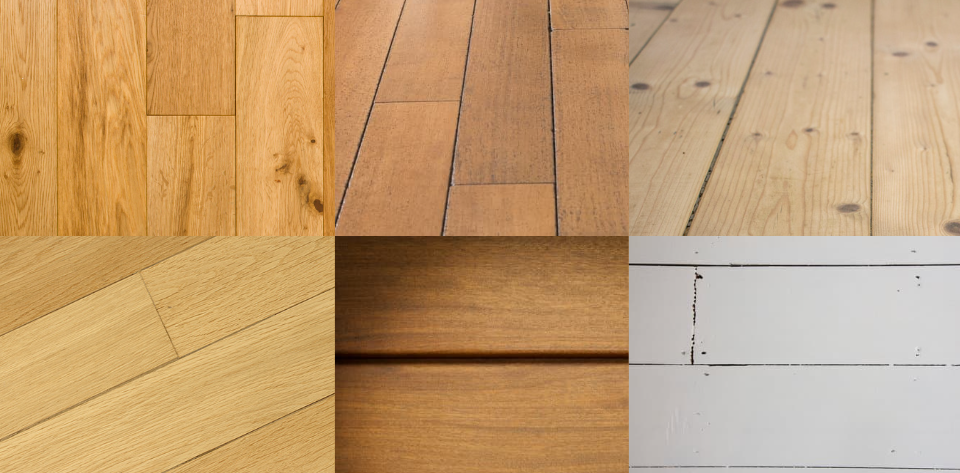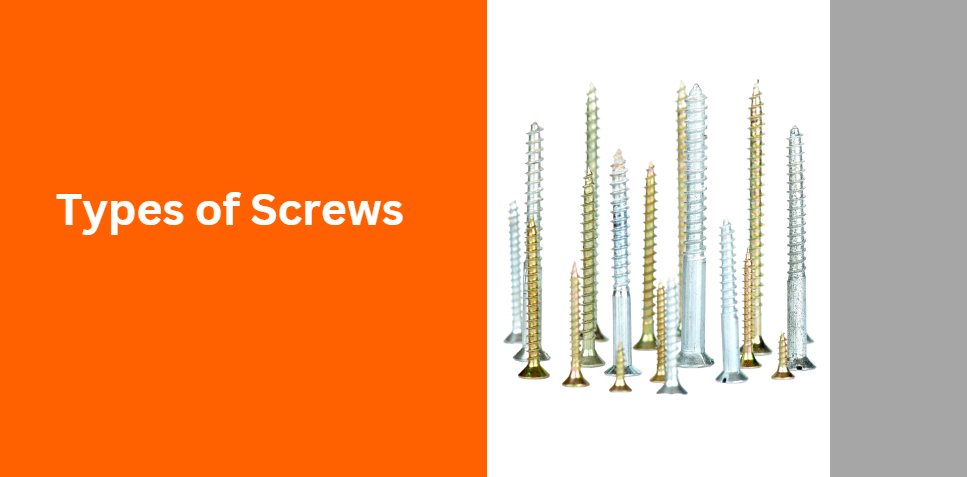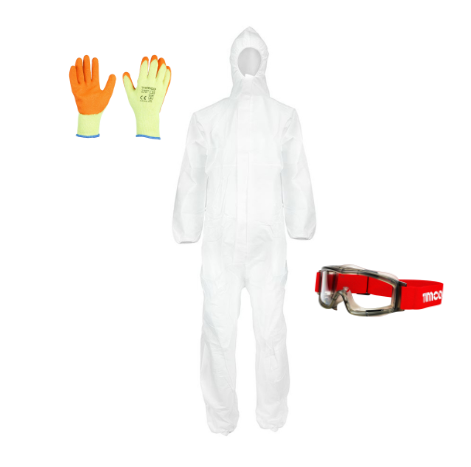What Size Screws for Floorboards: A Comprehensive Guide
Posted by Lawrie Fraser on 2nd November 2023
If you're planning on installing floorboards, you might be wondering what size screws to use. Choosing the right size screws is important to ensure that the floorboards are securely fastened to the joists and won't come loose over time. Using the wrong size screws can lead to squeaky, creaky floors or even worse, loose and unstable floorboards.
The size of screws you need for your floorboards will depend on the thickness of the boards and the spacing of the joists. For thinner boards, you'll need shorter screws, while thicker boards will require longer screws. It's also important to choose screws with the right thickness and thread type to ensure a secure fit. Using the wrong type of screws can cause the boards to split or the screws to strip, which can compromise the structural integrity of your floor.
Understanding Floorboards
When it comes to choosing the right screw size for your floorboards, it's important to understand the different types of floorboards available.
Floorboards are typically made from softwood, such as whitewood, pine, or spruce, or from redwood, which is usually thicker than softwood. Chipboard and plywood are also common materials used for floorboards.
One of the most important factors to consider when selecting the appropriate screw size for your floorboards is the thickness of the board. It's recommended to measure the height of the floorboard and the height of the wooden structure and choose a screw that is 1/3 inch smaller than the full size. This is an ideal size from our point of view.
It's also important to consider the condition of your floorboards. If your floorboards are old and seasoned, you will need to pilot the ends of the boards prior to fixing, as the screw is likely to split the board if it is any closer than about 60mm from the end of a board.
Overall, understanding the type and thickness of your floorboards is crucial when selecting the right screw size. By taking these factors into consideration, you can ensure that your floorboards are securely fastened and will last for years to come.

Types of Screws
When it comes to choosing screws for your floorboards, there are several types to consider. Here are some of the most common types:
Chipboard Screws
Chipboard screws are a popular choice for fixing chipboard flooring. They come in a range of lengths, typically between 25mm and 75mm, and have a coarse thread that provides a secure grip in the wood. They are usually made from carbon steel and have a yellow zinc coating to protect against corrosion.
Flooring Screws
Flooring screws are designed specifically for fixing floorboards. They are available in a range of sizes and finishes, including stainless steel and brass. They have a sharp point that makes them easy to start and a wide, flat head that helps to prevent the wood from splitting. They also have a deep thread that provides a strong grip in the wood.
Wood Screws
Wood screws are a versatile type of screw that can be used for a range of applications, including fixing floorboards. They come in a range of sizes and lengths and have a sharp point that makes them easy to start. They also have a coarse thread that provides a strong grip in the wood. Wood screws are available in a range of finishes, including zinc-plated and stainless steel.
Coach Screws
Coach screws are large, heavy-duty screws that are designed for use in timber structures. They are typically used for fixing joists and beams to posts and for securing heavy timbers together. They are available in a range of sizes and lengths and have a hexagonal head that can be tightened with a spanner.
When choosing screws for your floorboards, it is important to consider the type of wood you are using, as well as the thickness of the boards. You should also ensure that the screws are long enough to penetrate the joists by at least 25mm.

Size of Screws for Floorboards
When it comes to choosing the right size of screws for floorboards, there are two main considerations: length and diameter. In this section, we'll discuss both of these factors in detail to help you make an informed decision.
Length Considerations
The length of the screw you choose will depend on the thickness of your floorboards and the depth of the joists they will be attached to. As a general rule, you should aim to use screws that are at least twice the thickness of your floorboards. For example, if your floorboards are 18mm thick, you should use screws that are at least 36mm long.
It's also important to consider the depth of the joists. If the screws are too long, they can penetrate the joists and damage any wiring or pipes that may be running through them. As a general rule, you should aim to use screws that are no more than 2/3 the depth of the joist. For example, if your joists are 100mm deep, you should use screws that are no longer than 65mm.
Diameter Considerations
The diameter of the screw you choose will depend on the type of floorboards you are using and the material of the joists they will be attached to. As a general rule, you should aim to use screws that are at least 2.5 times the thickness of your floorboards. For example, if your floorboards are 18mm thick, you should use screws that are at least 45mm in diameter.
It's also important to consider the material of the joists. If you are attaching floorboards to softwood joists, you should use screws with a finer thread. This will help to prevent the softwood from splitting. If you are attaching floorboards to hardwood joists, you can use screws with a coarser thread.
In summary, when choosing the size of screws for your floorboards, you should consider the thickness of the floorboards, the depth of the joists, and the material of the joists. By taking these factors into account, you can ensure that your floorboards are securely attached and will last for many years to come.
Screw Materials
When it comes to choosing the right screws for your floorboards, the material of the screw is an important consideration. Here are some of the most common screw materials and their properties:
Steel Screws
Steel screws are the most common type of screw used for floorboards. They are strong, durable, and affordable. However, they are prone to rust and corrosion over time, which can weaken the screw and cause it to fail. It is important to choose a steel screw that has been coated with a rust-resistant material, such as zinc or galvanised steel.
Brass Screws
Brass screws are a popular choice for floorboards because they are corrosion-resistant and have a low risk of rusting. They are also aesthetically pleasing, with a shiny gold or bronze finish. However, brass screws are not as strong as steel screws and can be more expensive.
Stainless Steel Screws
Stainless steel screws are highly resistant to rust and corrosion, making them a good choice for floorboards in damp or humid environments. They are also strong and durable, but can be more expensive than steel screws.
Ceramic Screws
Ceramic screws are a newer type of screw that are becoming more popular for floorboards. They are highly resistant to rust and corrosion, as well as being very strong and durable. However, they can be more expensive than other types of screws.
When choosing the material for your floorboard screws, it is important to consider the environment in which they will be used, as well as the strength and durability required. Steel screws are a good all-round choice for most applications, but brass or stainless steel screws may be more suitable for humid or damp environments. Ceramic screws are a newer option that may be worth considering for their strength and durability.
Choosing the Right Screw
When it comes to choosing the right screw for your floorboards, there are a few factors to consider. Here are some tips to help you make the right choice:
Screw Length
The length of the screw you choose will depend on the thickness of your floorboards and the subfloor. A general rule of thumb is to choose a screw that is at least 2.5 times the thickness of your floorboards. For example, if your floorboards are 18mm thick, you should choose a screw that is at least 45mm long.
Screw Type
There are several types of screws that are suitable for floorboards. Here are some of the most common:
- Full-Thread Screws: These screws have threads that run the entire length of the screw. They provide a strong grip and are ideal for securing floorboards to joists.
- Part-Thread Screws: These screws have threads that only run part of the length of the screw. They are ideal for securing floorboards to subfloors.
- Countersunk Screws: These screws have a tapered head that sits flush with the surface of the floorboard. They provide a neat finish and are less likely to snag on shoes or socks.
Screw Size
The size of the screw you choose will depend on the thickness of your floorboards and the subfloor. A general rule of thumb is to choose a screw that is at least 1mm smaller than the thickness of your floorboards. For example, if your floorboards are 18mm thick, you should choose a screw that is 17mm in diameter.
Screw Material
The material of the screw you choose will depend on the environment in which your floorboards will be installed. For example, if your floorboards will be installed in a damp environment, you should choose screws that are made from stainless steel or brass to prevent rust.
By considering these factors when choosing the right screw for your floorboards, you can ensure a secure and long-lasting installation.
Pre-Drilling Holes
When screwing floorboards, it's important to pre-drill holes to prevent the wood from splitting. The size of the hole should be slightly smaller than the diameter of the screw. This allows the screw to grip the wood properly without causing any damage.
To determine the correct drill bit size, you can use a chart like the one provided by Bolt Depot. The chart lists the recommended pilot hole sizes for different screw diameters.
It's also important to drill the hole to the correct depth. The hole should be deep enough to allow the screw to sit flush with the surface of the wood. If the hole is too shallow, the screw will stick up and create a tripping hazard. If the hole is too deep, the screw won't be able to grip the wood properly.
When drilling the holes, make sure to hold the drill perpendicular to the surface of the wood. This will ensure that the holes are straight and the screws go in straight as well. If the holes are drilled at an angle, the screws will be angled as well and won't grip the wood properly.
In summary, pre-drilling holes is an important step when screwing floorboards. Make sure to use the correct drill bit size and drill the holes to the correct depth. Hold the drill perpendicular to the surface of the wood to ensure straight holes.
Safety Precautions
When working with screws for floorboards, it is important to take safety precautions to ensure that the job is done safely and correctly. Here are a few safety tips to keep in mind:
Wear Protective Gear
Always wear protective gear, including safety goggles and gloves, when working with screws. This will help protect your eyes and hands from any potential hazards.
Use the Right Tools
Make sure you have the right tools for the job. Using the wrong tools can lead to stripped screws or other problems. Use a drill with the appropriate drill bit, and make sure the screwdriver bit fits the screw head properly.
Check for Electrical Wires
Before drilling into the floorboards, make sure there are no electrical wires or pipes underneath. Use a stud finder or other tool to check for any potential hazards.
Use the Right Screws
Make sure you use the right screws for the job. The size of the screw will depend on the thickness of the floorboards and the type of wood. Consult the manufacturer's guidelines or a hardware store expert to ensure you are using the correct screws.
Don't Over-Tighten Screws
Over-tightening screws can cause the floorboards to warp or split. Tighten the screws until they are snug, but not too tight.
By following these safety precautions, you can ensure that your job is done safely and correctly.

Common Mistakes
When it comes to choosing the right screws for your floorboards, there are a few common mistakes that people make. Here are some things to watch out for:
Using the Wrong Size
One of the most common mistakes is using screws that are the wrong size. If you use screws that are too short, they won't hold the floorboards securely in place. On the other hand, if you use screws that are too long, they can poke through the other side of the floorboards or even damage the joists below.
To avoid this mistake, make sure you measure the thickness of your floorboards and choose screws that are the right length. As a general rule, you should use screws that are at least 2.5 times the thickness of your floorboards.
Using the Wrong Type of Screw
Another mistake is using the wrong type of screw. For example, if you use drywall screws instead of wood screws, they won't be strong enough to hold the floorboards in place. Similarly, if you use screws with a flat head instead of a countersunk head, they will stick up above the surface of the floorboards and create a tripping hazard.
To avoid this mistake, make sure you choose screws that are specifically designed for use with wood flooring. These screws will be strong enough to hold the floorboards securely in place and will have a countersunk head that sits flush with the surface of the floorboards.
Not Pre-Drilling the Holes
Finally, another common mistake is not pre-drilling the holes for the screws. If you try to screw the screws directly into the floorboards without pre-drilling the holes, you run the risk of splitting the wood or even breaking the screws.
To avoid this mistake, make sure you pre-drill the holes for the screws before you start screwing them in. The size of the drill bit you use should be slightly smaller than the diameter of the screws you are using.
By avoiding these common mistakes, you can ensure that you choose the right screws for your floorboards and install them correctly, so your floor stays secure and squeak-free for years to come.
Conclusion
In conclusion, choosing the right size screw for your floorboards is crucial to ensure a secure and long-lasting installation. It's important to consider the thickness of the floorboards, the type of wood, and the subflooring material before selecting the appropriate screw size.
When selecting screws, it's recommended to choose a length that is at least two-thirds the thickness of the floorboard. For example, if your floorboard is 18mm thick, choose screws that are at least 12mm long. It's also important to choose screws that are the correct gauge and thread type for your specific flooring material.
Remember to always use screws that are specifically designed for flooring installations, as they are designed to withstand the weight and movement of foot traffic. Avoid using nails, as they can loosen over time and cause creaking and squeaking.
Overall, taking the time to select the right size screw for your floorboards will save you time and money in the long run, as it will ensure a secure and stable installation that will last for years to come.
